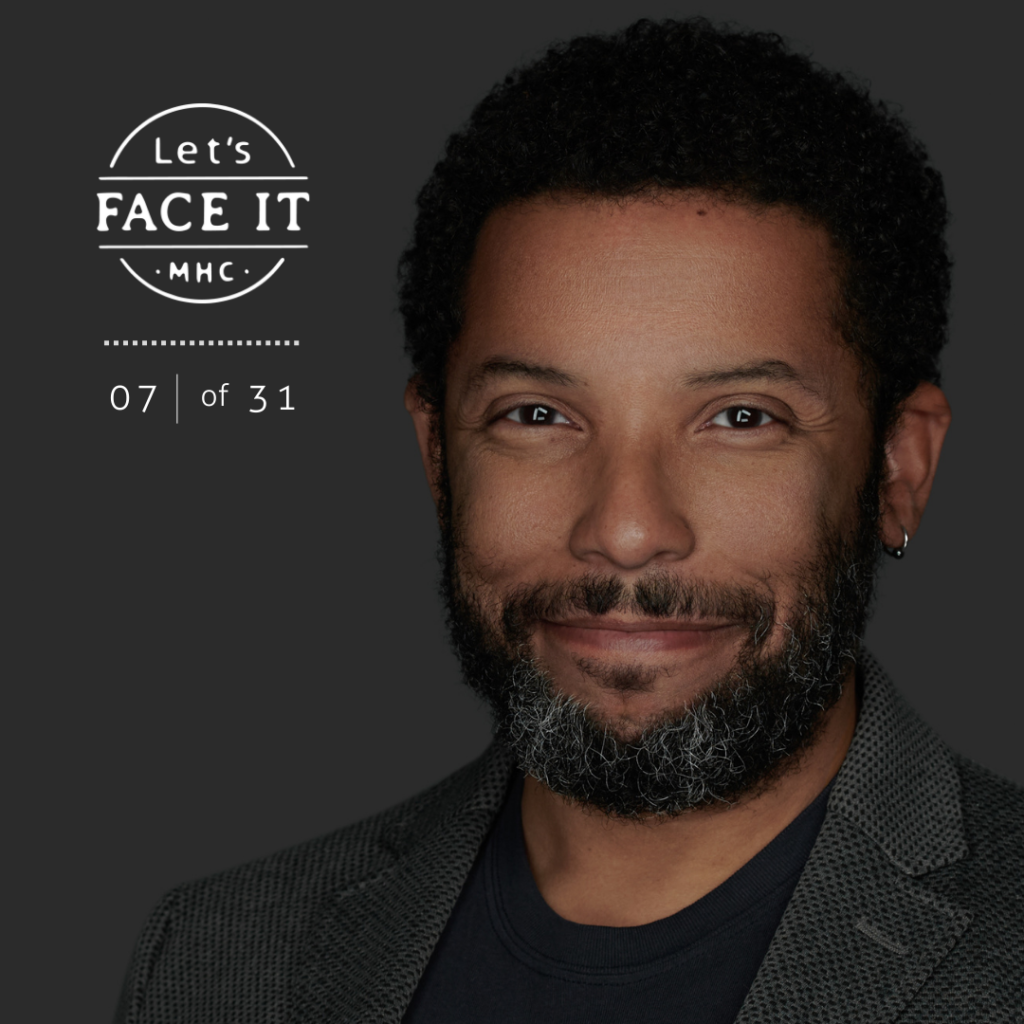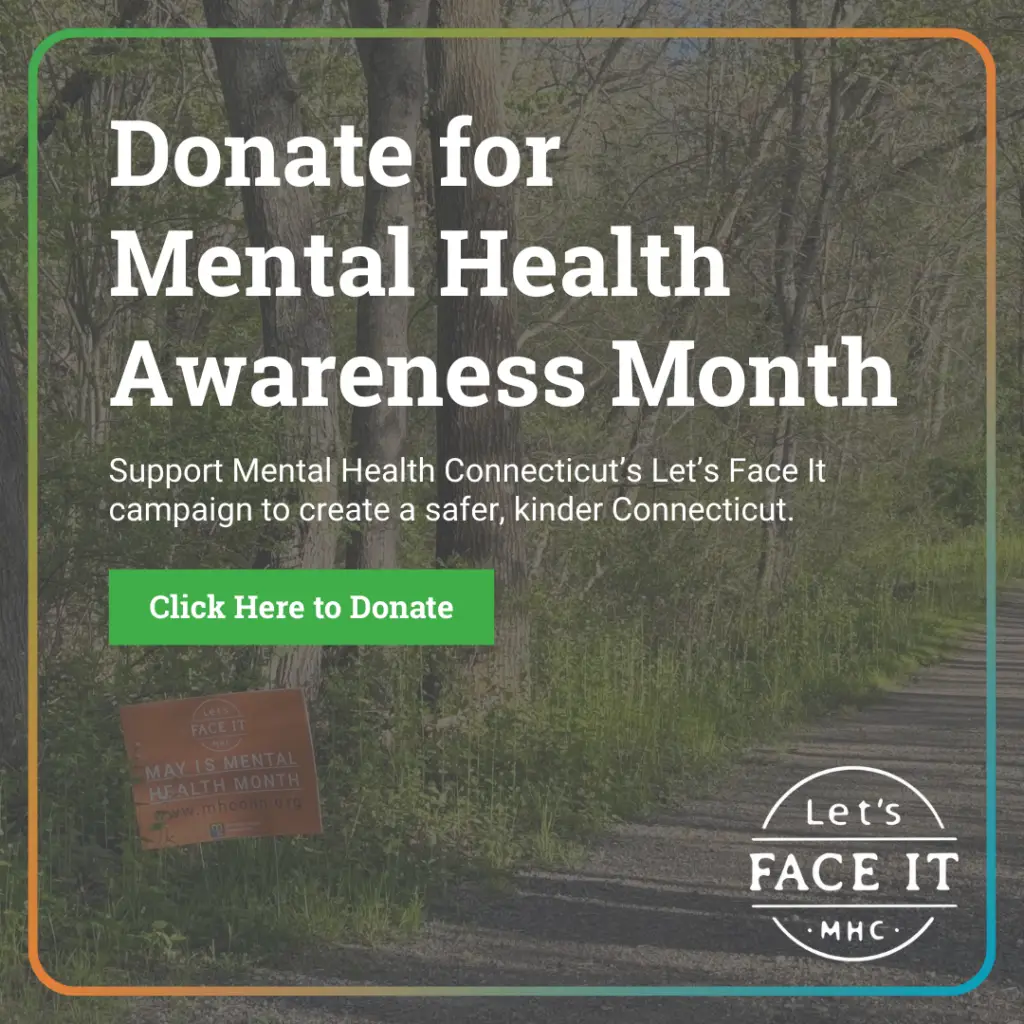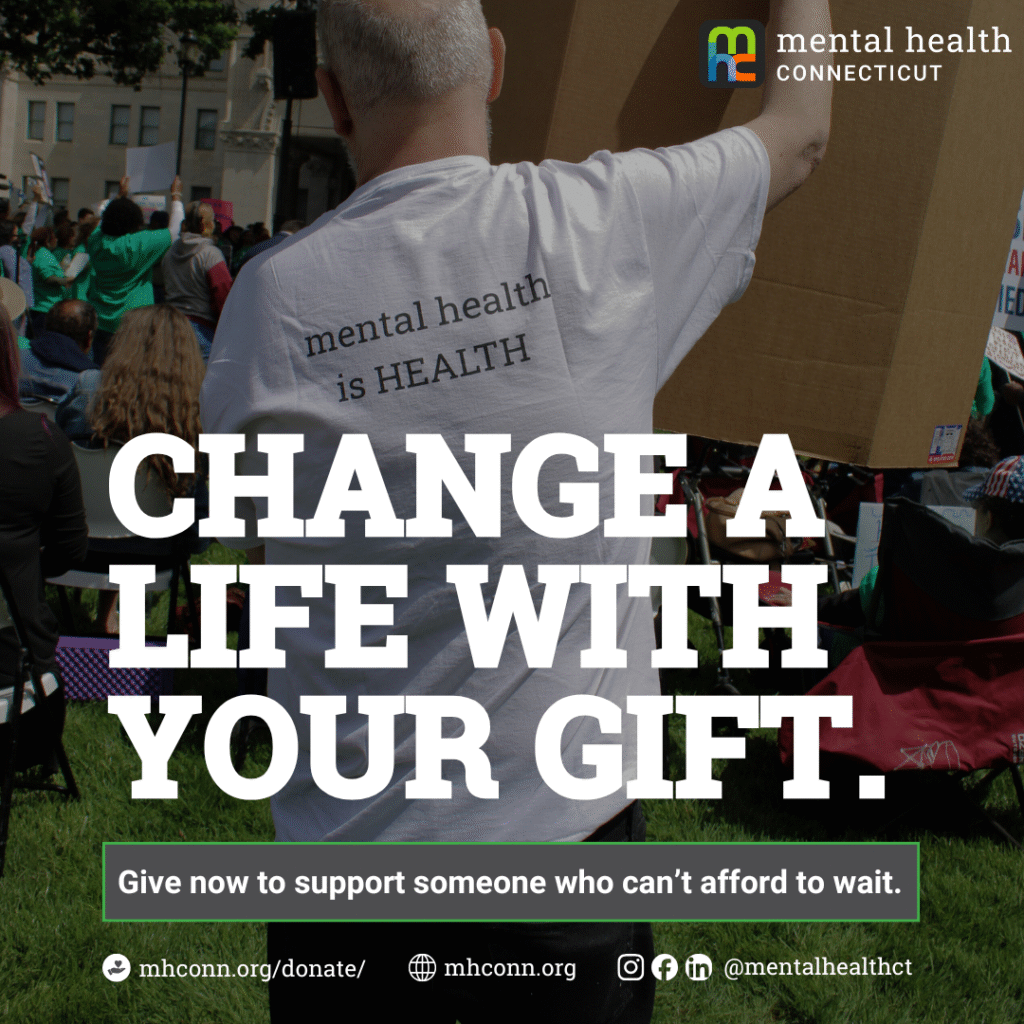 As the founder of the branding communications company CO:LAB, executive director of the nonprofit Free Center, commissioner of cultural affairs for the City of Hartford and a fine art photographer, Rich Hollant knows all about the importance of messaging and sharing your truth. He was eager to talk about stigma.
As the founder of the branding communications company CO:LAB, executive director of the nonprofit Free Center, commissioner of cultural affairs for the City of Hartford and a fine art photographer, Rich Hollant knows all about the importance of messaging and sharing your truth. He was eager to talk about stigma.
“Throughout my life I have encountered a lot of different forms of stigma. I have, my kids have, my entire family has,” he says. As a Haitian American, Hollant grew up on Long Island one of three Black kids in his town. “It was hugely ostracizing,” he says, noting he was also the shortest kid in the school “a place where you’re already super ostracized. I could not get to 91 pounds if I tried.”
“Every time I have to say I’m Haitian, there’s a piece of carrying that,” he says, noting that Haiti is perceived to be a place of poverty and little else. “That’s the impact of stigma. The belief—not even an actuality—that to survive in the world with this thing, you could deny your identity to make that happen. Stigma to me has taken on this mantle of massive adversary. It’s pervasive in every issue that doesn’t fall along the lines of what is—in the largest cartoonish quotes around it—seen as normal.”
He remembers when he first started his business and would set up appointments to meet with potential clients. “They would paint a mental picture for themselves on the phone. They drew a picture in their minds of what would walk through the door,” he says. “To have a youngish Black guy walk through the door really threw a lot of people for a loop. You could literally see this on their faces. Those types of bias and expectations and attempts to standardize a being carries a weight. It influences how you assume they will be.”
The circle of stigma hit home in a different way when Hollant’s wife, Karen, became critically ill with brain cancer a little over a year ago. She had long dealt with impulse control disorder, but it had been the elephant in the room secret. “It had been pervasive in our family for as long as we had known each other. We didn’t know it had a name,” he says. “It was nothing she felt comfortable talking about inside or outside the house. It was a quiet plague. She was adamant about not talking about it publicly but it had a profound impact on all of us.”
As she became more ill, however, she realized that she needed to share this issue. “Once medical people realized [what was going on], they raised the alarm about self injury etc. so it became public,” Hollant says. “She quickly noted some of the responses were not the response she expected. A lot of people could relate and talk about it. She got more support than any of the negative things she expected.”
On some levels, it was a final gift from his wife, who has since died, Hollant says. “What we’ve all taken away from it here in my house is that we are bigger than anybody’s perception of us. That’s on them, not on us. In my work universe I have adopted the attitude that this is a great first test if this is the kind of person I want to work with.”
“If we could recast stigma and make it not about how it impacts us but as an indicator of someone else’s struggle—to be present, to be decent, to be curious, to be embracing, that’s what it is,” he says. “It’s not about us.”
[su_divider top=”no” divider_color=”#fdb528″ margin=”0″]
Each day in May, you will meet a new face and a new lived experience, because #LetsFaceIt there is no one-sized fits all when it comes to our wellbeing. View past posts here.
Looking for resources or support in CT but don’t know where to start? Contact MHC’s free Information & Referral line: https://www.mhconn.org/education/information.








